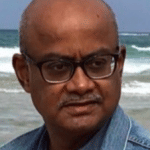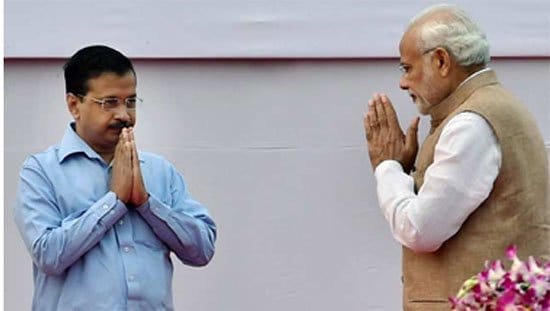 How MCI can save the country
How MCI can save the country
Devi Shetty | Cardiac surgeon and Chairman and Founder, Narayana Health
The Times Of India
Renowned doctor, Devi Shetty throws light on the role of the Medical Council of India — an apex body that controls medical education — in battling the coronavirus. Just by changing the MCI regulations, India can produce 1.5 lakh doctors and specialists out of thin air, the author claims. Many specialists are waiting to appear for their exams and MCI can skip exams and award them the degree ‘Board eligible’, which was done in the case of the US. The tough battle can only be fought by young doctors and nurses as COVID-19 is dangerous for doctors above 60, he writes.
 Beware of a lopsided lockdown
Beware of a lopsided lockdown
Jean Dreze | Visiting Professor at the Department of Economics, Ranchi University
The Hindu
In light of the 21-day lockdown disproportionately affecting several informal sector workers and their families, Dreze argues that the Public Distribution System (PDS) is an important asset in this situation but it needs to be expanded in terms of both coverage and entitlements. He focuses on the need for large scale cash transfer without the use of biometrics. The Centre and states should cooperate since many states have announced relief measures, which require big money from the Centre, he writes.
 Include the Opposition in executive decision-making
Include the Opposition in executive decision-making
Vivek Katju | Former diplomat
Hindustan Times
Katju calls for Prime Minister Modi and opposition leaders to reach out to each other to overcome the Covid-19 pandemic, which has become a national challenge. There will be a need to take difficult steps and it is important that the political class becomes united for the cause, writes Katju. Prime Minister Modi should consider consulting a wide cross-section of economists, including those with the Opposition, to chart a way forward during this crisis, he suggests.
 India has a short window to win the war against Covid-19
India has a short window to win the war against Covid-19
Prasada Rao | Former health secretary, Govt of India
Hindustan Times
Rao notes that the 21-day lockdown announced by the prime minister is a timely response and a window of opportunity to test people and their families who returned from abroad between January and March 2020. He writes that it is also an opportune time for the government to look for rapid antibody testing — which can give results on the same day and was also introduced during HIV/AIDS. He warns that we should not make the mistake of not responding rapidly enough like some of the European countries.
 Mind your own economic health
Mind your own economic health
Arun Maira | Former member of the Planning Commission
The Indian Express
The author argues that the Covid-19 pandemic has further exposed the architectural weakness in the global economy. On the state of the Indian economy, he lists six reforms that can reshape it — focusing on the provision of universal social security, respecting the informal sector, changing the economic paradigm from ‘trickle down’ to ‘build-up’ and strengthening public education, health and local governance.
 A war to rescue daily wagers
A war to rescue daily wagers
Anjana Menon | CEO, Content Pixies
The Economic Times
Menon says compensating daily-wage labourers should be the central government’s utmost priority during this lockdown. “Fiddling with taxes or offering a cushion to large companies” can come later, she adds. The government should use “the vast database” under Pradhan Mantri Jan Dhan Yojana (PMJDY), MGNREGA and thousands of other social sector plans in order to create a list of “India’s poorest” and make direct transfers so that they can survive this month, she suggests.
 Asian lessons for the west
Asian lessons for the west
Amitendu Palit | Senior research fellow at the Institute of South Asian Studies at the National University of Singapore.
Financial Express
Palit credits Taiwan, Hong Kong, Singapore and other Asian countries for effectively capping the spread of Covid-19 despite their proximity to China, where it originated. This “shows countries with previous experience of handling pandemics can do better,” he adds. In the West, however, there was initially “a stoic indifference, which has had implications for their capacity to handle pandemics”, he writes.
 War-time thinking needed, not therapy
War-time thinking needed, not therapy
Somasekhar Sundaresan | Advocate and an independent counsel
Business Standard
Sundaresan describes the Covid-19 pandemic as a situation that requires “extraordinary response from the framework of the law”. He credits the Supreme Court for taking the first step by invoking Article 142 and ruling that all deadlines for limitation stand extended. From now on, “Every constituent in the economy and the legal system governing the economy” have to “completely reboot and think afresh about how to handle matters that would otherwise be routinely handled in terms of a norm”, he adds.
 Took the coronavirus threat lightly? It’s your mind, silly
Took the coronavirus threat lightly? It’s your mind, silly
Biju Dominic | Chief executive officer of Final Mile Consulting, a behaviour architecture firm
Mint
Dominic discusses the way world leaders and ordinary citizens around the world “treated the [novel coronavirus] threat so casually”. He explains that the human brain was “designed for a world where dangers came predominantly in the form of predators” and with the coronavirus being “invisible”, people were initially not motivated to respond to it. He also expands on the mob mentality behaviour behind buying, hoarding and wearing masks.
Today’s Editorials
The Hindu: India’s unprecedented 21-day national lockdown is an unparalleled effort at stopping the march of a fast-spreading scourge, writes Hindu. Although the central government seems to have thought of such a move in advance in a bid to flatten the curve of transmission of the novel coronavirus, the enforcement has left millions of people unprepared for the severe disruption, it writes.
Hindustan Times: HT expresses concern over the lack of hospice facilities to treat elderly people inflicted by coronavirus. This means that families have to be educated about how to keep older people isolated in order to protect them from infection, the daily writes, and notes that this isn’t easy in crowded joint family systems. It urges the government to be more proactive and ensure mobile geriatric health services.
The Indian Express: The paper condemns the nearly eight-month-long detention of former Jammu and Kashmir chief minister Omar Abdullah, who was released earlier this week. It writes that the government has given no reason why Abdullah had to be detained eight months ago and further condemns the curbs on access to the internet. While the rest of the country can freely access information on Covid-19 from across the world, J&K still does not have full-fledged access to the internet to enable people to understand this disease, it says.
With inputs from Angana Chakrabarti






